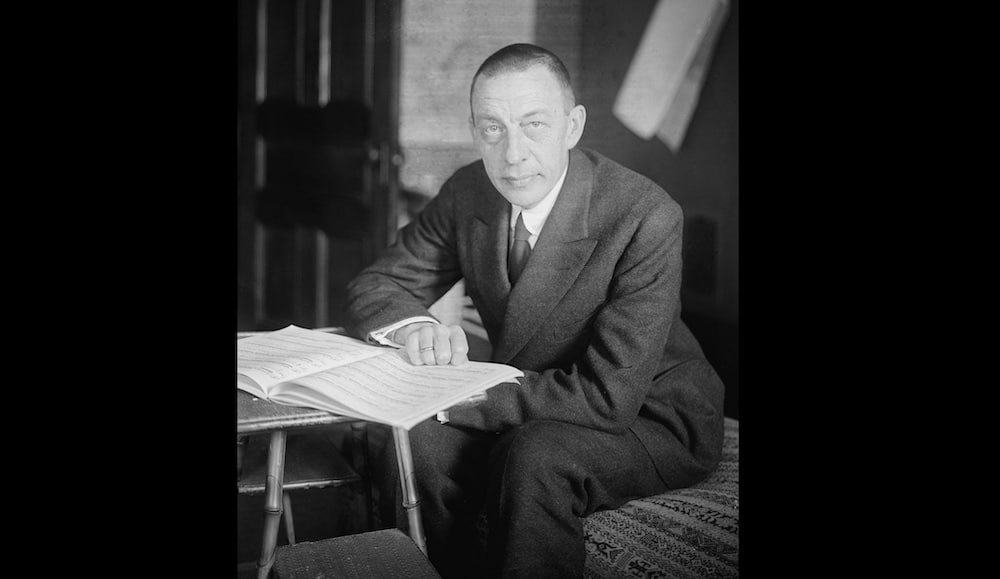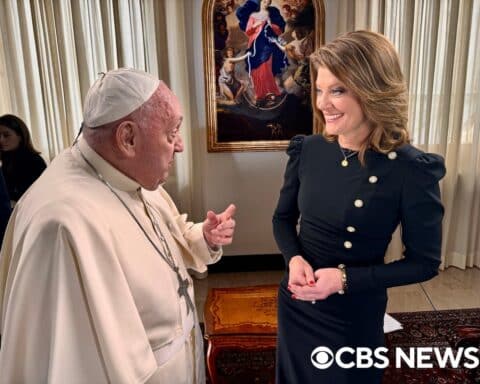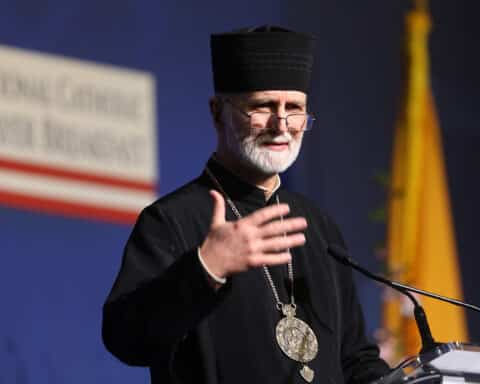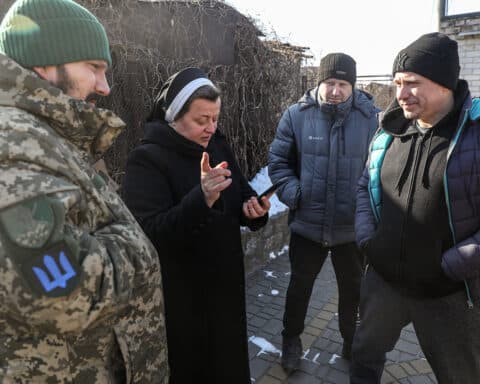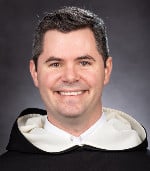
Rachmaninoff loved the liturgical chant of the Russian Orthodox Church, which he experienced thanks to his maternal grandmother. “My grandmother was very religious and attended regularly the services held in the different churches of the city,” he recalls. “We spent hours standing in the beautiful St. Petersburg churches.” Unconventionally devout, by his own admission, he took less interest in God than in singing during these visits of his youth. Composer and friend Alexander Goedicke would later recall, “He loved church singing, and often, even in winter, rose at seven and went by cab to the early liturgy at Andronief Monastery, hearing the old chants sung by the monks.”
Thanks to the composer‘s appreciation for the liturgy and liturgical chant, “All-Night Vigil” is a work of unparalleled transcendence, 75 uninterrupted minutes of choral singing. I recently had the chance to hear the magnificent piece sung in concert with some of my Dominican brothers in Washington, D.C., hosted at St. Peter’s Church on Capitol Hill. It was an extraordinary performance.
Toward the end of the fifth movement (Nunc Dimittis, which Rachmaninoff had sung at his funeral), the basses sing a descending scale, which sinks all the way down to a B-flat (the third one below middle C). It’s a note so low the depths of the earth tremble when it’s sung! Coupled with the words “Lord, now let your servant go in peace” (Simeon’s canticle sung every night by the Church in night prayer), the whole effect is astonishing.
First performed as a benefit for the war relief effort, the work unquestionably betrays dark times. In 1914, when Russia entered WWI, thousands of Russians were killed and wounded, with over 100,000 captured at the battle of Tannenberg. Hearing the words and tones of the music, it was hard not to think of death. I thought of the soldiers and innocents dying in Ukraine, and of the need to preserve the integrity of the Christian faith in the face of such horror. Perhaps Rachmaninoff, who himself fled the Bolsheviks, would identify with the refugees fleeing Putin’s forces today.
Some might have been tempted to boycott such a concert, refusing to celebrate Russian traditions as Russian leaders and Russian forces continue an unprovoked, unjustified invasion. I say we have at this moment the solemn and urgent duty to denounce the war. As Christians, we have a particular duty: to denounce the way that the Gospel is being twisted by the leaders of the Russian Orthodox Church to justify the fighting. We must urge our bishops to not only decry the war, but to unequivocally condemn the use of the Gospel to defend it.
My favorite movement of the All-Night Vigil, however, is not the famed Nunc Dimittis. I prefer the 12th movement: Slvoslovie velikoye (The Great Doxology). The text is a glorious hymn of praise to God, which begs his mercy be poured out on us. The word mercy is sung 12 times in this movement.
Composed at a moment of chaos, All-Night Vigil offers a taste of the peace God offers. The peace he brings to all who put their trust in him, despite the raging powers of hell. For there is another battle being fought this Lent, the spiritual battle for our souls.
Father Patrick Briscoe, OP, is editor of Our Sunday Visitor. Follow him on Twitter @PatrickMaryOP.

